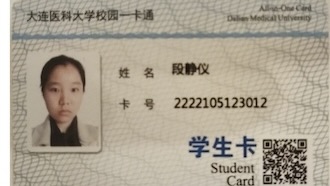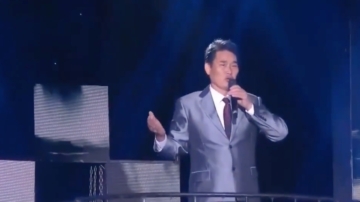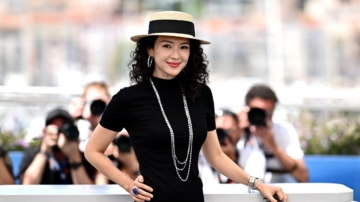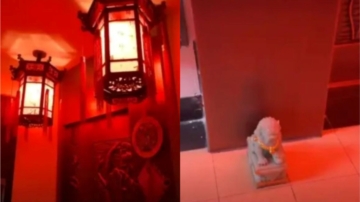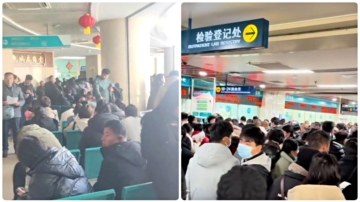【新唐人2014年01月14日讯】日前,有媒体人向外界披露,公益团体“公盟”被定为“反党集团”被治罪,而引起各界哗然。反党集团在中共毛泽东时代常常被用来给不同的中国人定罪,上至中共自身的高官领导者,下至普普通通百姓。法律人士认为,在法律上从来没有“反党集团”这个名词,也没有反党这个罪名。那么中共当局为甚么如今又把这个“反党集团”从新翻出来?请看专家的分析。
大陆资深媒体人高瑜日前向海外媒体披露,北京当局已经决定要把中国公益组织“公盟谘询公司”定为反党集团,“公盟”发起人许志永、及“公盟”赞助商人王功权,有可能被定重罪。
大陆资深媒体人高瑜:“这个是任志强传达的。就是任志强年前要有一个企业家会,被上级找去了,传达了就是这些。”
据了解,去年底,中国地产大亨任志强参加企业家聚会时,不少企业家对王功权被当局抓捕颇有不满。他们原本准备下午聚会,没想到上午就被中共政协主席俞正声找去。
南京“东南大学”法学教授张赞宁表示:“公盟”不存在反对中国共产党的问题。大不了是作为反对党,反对党是很正常的。
南京东南大学法学教授张赞宁:“公盟他只是履行了一个公民的权力、公民的职责,比如他们参加人大的竞选、主张公民社会,这都是在宪法和法律的范围内进行的活动,所以不应当以一个反党集团把他们抓起来,这是毫无理由和没有证据的。就是让人民噤声,把人民的嘴封住。”
“公盟”的前身是“阳光宪政研究中心”,2003年由中国法学学者许志永、滕彪、及俞江博士等人创建。“公盟”组织参与了大量推动社会公平正义的维权活动,包括迫使北京废除收容遣返制度、传播选举等法律知识、呼吁取消流动人员的子女高考户籍限制、和要求官员财产公示等。
高瑜:“就是进行公民运动嘛。一个是促进反腐,就是要领导人公布财产;再有一个就是提出教育平权。也没有违反宪法。按照宪法35条,公民表达言论的自由,他们是在表达他们的政治观点。”
高瑜表示,当今中共高层“思想非常陈旧”,思维还是中共那种阶级斗争方式,只要坚持普世价值、民主宪政,就可能被定性反党、反社会主义。
2010年第9期北京《炎黄春秋》杂志,发表郭德宏的文章:中共历史上“反党集团”的结局。
文章提到,在中共各个历史时期,曾经有无数人被打成大大小小的“反党集团”。包括党员、非党员;包括干部、群众;也有中共中央和国家的高级领导人;还有20世纪20年代就入党的老党员;既有文化、教育界的人士,也有党、政、军、公安、政法等领域的人员等等。
郭德宏指出,1957年至1958年:中共打“反党集团”进入高潮,“反党集团”遍及全国;1959年至1965年:在“反右倾”等运动中继续打了很多“反党集团”;“文革”时期:打“反党集团”进入第二个高潮。
郭德宏文中表示,具有讽刺意味的是,原来把无数人打成“反党集团”的人,也被打成“反党集团”。
张赞宁表示:反党集团在毛泽东统治时代,被大规模的用来迫害人,“反党集团”没有一个定义,在法律上也没有这个名词,而法律上是没有“反党”这个罪名的。
张赞宁:“现在把公盟作为反党集团来处理也是很奇怪的事情,公盟成立至今已经10年了,为甚么突然在10年之后就发现他们是反党集团?所以我认为这是一个欲加之罪。”
时事评论员任百鸣认为:中国大陆现在各地民怨四起,中共政权岌岌可危的情况下,中共最担心和恐惧的事情,是它的执政合法性。
时事评论员任百鸣:“它一定要维护它党的这种所谓权威,所以它把一些威胁的力量,或者是稍微它所认为的这些对它有威胁的力量,它定为反党集团,一打成反党集团以后,它在政治运作上一切方面它都会大开绿灯,也可以大开杀戒,这是它考虑的成分。”
任百鸣表示:中共的恐惧和担心到了极点,所以各种各样的手段和这种不可理喻的事情也就会相继参合在一起发生,实际上也就是中共灭亡之前的征兆。
采访编辑/易如 后制/钟元
Beijing Charges the Anti-Party Clique
Beijing has aroused public uproar for reportedly charging the
NGO Open Constitution Initiative with the crime of being an
"anti-Party group", a label used in the Mao era to convict
anyone from high ranking officials to average Chinese people.
Legal experts question the so-called anti-Party group charge
and its existence as a crime.
So, why is the regime exploiting this label now?
Senior journalist Gao Yu has revealed that Beijing has labeled
Open Constitution Initiative (OCI) as an anti-Party group.
The organizer Xu Zhiyong and the sponsor Wang Gongquan
will be facing heavy sentences.
Gao Yu, senior journalist: "Ren Zhiqiang delivered the message.
He was told before the New Year, during a party for entrepreneurs."
Real estate tycoon Ren Zhiqiang had participated in an
entrepreneurs' party.
Many participants showed their discontent
over the arrest of Wang Gongquan.
They had planned another gathering for later that day.
But Ren Zhiqiang was summoned by the Political Consultative
Committee Chairman Yu Zhengsheng in the morning.
Law professor Zhang Zanning says that the OCI is not
about anti-Party. At most, it can be seen as a typical opponent.
Zhang Zanning, law professor, Southeast University:
"The OCI is only conducting the rights and duties of a citizen.
They participate in the National People's Congress election,
advocate civil society, and its activities are
well within the scope of the Constitution and laws.
There is no reason to arrest them in the name of
being an anti-Party group.
The regime is silencing the people's voices."
The Open Constitution Initiative or OCI, also known as
Gongmeng, was established in 2003 by Xu Zhiyong, Yu Jiang,
and Teng Biao from the Peking University Law School.
Among it's many activities for social justice are demanding
Beijing to abolish the custody and repatriation regulation
for migrant workers, disseminating legal knowledge about
elections, calling for the abolition of child residency
restrictions during college entrance exams,
and requiring officials declare their property.
Gao Yu: "It is all about civic movements.
One is to promote anti-corruption by having the leadership
declare their property;
and another is about the affirmative action in education.
It is not unconstitutional.
According to Article 35 in China's constitution, regarding
freedom of expression, they are expressing their political views."
Gao Yu says the regime leadership still has the struggle
philosophy of the Chinese Communist Party (CCP).
Any insistence on universal values or constitutional democracy
is labeled as anti-Party and anti-socialist.
In the ninth issue in 2010 of the Chinese magazine, YanHuang
ChunQiu, an article by Guo Dehong detailed the historical
tragedy of those who were labeled as the anti-Party by the CCP.
The article says that in the CCP's history, the anti-Party label
has been used many times on Party members, general public,
non-Party members, cadres, central leaders and senior cadres,
including people in all fields such as cultural, education,
the Party, political, the army, public security, and so forth.
Guo Dehong noted that between 1957 and 1958, the CCP's
campaign to remove the anti-Party groups hit a climax.
The campaign had continued in the anti- rightist movement
between 1959 and 1965.
Until the Cultural Revolution, the movement to clean out
anti-Party members had reached its second climax.
Guo Dehong says that those who had labeled millions of
people as part of the anti-party clique ironically also ended up
being labeled as part of the anti-party clique later on.
Zhang Zanning says that Mao Zedong exploited the
anti-Party clique label to conduct large-scale persecution.
However, the anti-Party clique label has no legal definition
and can't even be found in dictionaries,
and there is no such crime in law.
Zhang Zanning: "It is bizarre to treat the OCI as anti-Party.
OCI has been established for 10 years.
Why is it suddenly labeled as against the Party 10 year later?
It is simply arbitrarily labeling."
Commentator Ren Baiming suspects that the CCP fears and
worries about the crisis of the regime's failing legitimacy and
collapse under the current widespread discontent.
Ren Baiming, commentator: "To maintain its Party authority,
it must remove the threats.
Any slight threat will be labeled as anti-Party.
With the label, the political suppression becomes legitimate,
even killing becomes an acceptable means."
Ren Baiming says that CCP's fear and worry have gone to the
extreme, so it employs many incomprehensible measures,
but this is in fact a sign before the demise of the CCP.
Interview & Edit/YiRu Post-Production/ZhongYuan
大陆资深媒体人高瑜日前向海外媒体披露,北京当局已经决定要把中国公益组织“公盟谘询公司”定为反党集团,“公盟”发起人许志永、及“公盟”赞助商人王功权,有可能被定重罪。
大陆资深媒体人高瑜:“这个是任志强传达的。就是任志强年前要有一个企业家会,被上级找去了,传达了就是这些。”
据了解,去年底,中国地产大亨任志强参加企业家聚会时,不少企业家对王功权被当局抓捕颇有不满。他们原本准备下午聚会,没想到上午就被中共政协主席俞正声找去。
南京“东南大学”法学教授张赞宁表示:“公盟”不存在反对中国共产党的问题。大不了是作为反对党,反对党是很正常的。
南京东南大学法学教授张赞宁:“公盟他只是履行了一个公民的权力、公民的职责,比如他们参加人大的竞选、主张公民社会,这都是在宪法和法律的范围内进行的活动,所以不应当以一个反党集团把他们抓起来,这是毫无理由和没有证据的。就是让人民噤声,把人民的嘴封住。”
“公盟”的前身是“阳光宪政研究中心”,2003年由中国法学学者许志永、滕彪、及俞江博士等人创建。“公盟”组织参与了大量推动社会公平正义的维权活动,包括迫使北京废除收容遣返制度、传播选举等法律知识、呼吁取消流动人员的子女高考户籍限制、和要求官员财产公示等。
高瑜:“就是进行公民运动嘛。一个是促进反腐,就是要领导人公布财产;再有一个就是提出教育平权。也没有违反宪法。按照宪法35条,公民表达言论的自由,他们是在表达他们的政治观点。”
高瑜表示,当今中共高层“思想非常陈旧”,思维还是中共那种阶级斗争方式,只要坚持普世价值、民主宪政,就可能被定性反党、反社会主义。
2010年第9期北京《炎黄春秋》杂志,发表郭德宏的文章:中共历史上“反党集团”的结局。
文章提到,在中共各个历史时期,曾经有无数人被打成大大小小的“反党集团”。包括党员、非党员;包括干部、群众;也有中共中央和国家的高级领导人;还有20世纪20年代就入党的老党员;既有文化、教育界的人士,也有党、政、军、公安、政法等领域的人员等等。
郭德宏指出,1957年至1958年:中共打“反党集团”进入高潮,“反党集团”遍及全国;1959年至1965年:在“反右倾”等运动中继续打了很多“反党集团”;“文革”时期:打“反党集团”进入第二个高潮。
郭德宏文中表示,具有讽刺意味的是,原来把无数人打成“反党集团”的人,也被打成“反党集团”。
张赞宁表示:反党集团在毛泽东统治时代,被大规模的用来迫害人,“反党集团”没有一个定义,在法律上也没有这个名词,而法律上是没有“反党”这个罪名的。
张赞宁:“现在把公盟作为反党集团来处理也是很奇怪的事情,公盟成立至今已经10年了,为甚么突然在10年之后就发现他们是反党集团?所以我认为这是一个欲加之罪。”
时事评论员任百鸣认为:中国大陆现在各地民怨四起,中共政权岌岌可危的情况下,中共最担心和恐惧的事情,是它的执政合法性。
时事评论员任百鸣:“它一定要维护它党的这种所谓权威,所以它把一些威胁的力量,或者是稍微它所认为的这些对它有威胁的力量,它定为反党集团,一打成反党集团以后,它在政治运作上一切方面它都会大开绿灯,也可以大开杀戒,这是它考虑的成分。”
任百鸣表示:中共的恐惧和担心到了极点,所以各种各样的手段和这种不可理喻的事情也就会相继参合在一起发生,实际上也就是中共灭亡之前的征兆。
采访编辑/易如 后制/钟元
Beijing Charges the Anti-Party Clique
Beijing has aroused public uproar for reportedly charging the
NGO Open Constitution Initiative with the crime of being an
"anti-Party group", a label used in the Mao era to convict
anyone from high ranking officials to average Chinese people.
Legal experts question the so-called anti-Party group charge
and its existence as a crime.
So, why is the regime exploiting this label now?
Senior journalist Gao Yu has revealed that Beijing has labeled
Open Constitution Initiative (OCI) as an anti-Party group.
The organizer Xu Zhiyong and the sponsor Wang Gongquan
will be facing heavy sentences.
Gao Yu, senior journalist: "Ren Zhiqiang delivered the message.
He was told before the New Year, during a party for entrepreneurs."
Real estate tycoon Ren Zhiqiang had participated in an
entrepreneurs' party.
Many participants showed their discontent
over the arrest of Wang Gongquan.
They had planned another gathering for later that day.
But Ren Zhiqiang was summoned by the Political Consultative
Committee Chairman Yu Zhengsheng in the morning.
Law professor Zhang Zanning says that the OCI is not
about anti-Party. At most, it can be seen as a typical opponent.
Zhang Zanning, law professor, Southeast University:
"The OCI is only conducting the rights and duties of a citizen.
They participate in the National People's Congress election,
advocate civil society, and its activities are
well within the scope of the Constitution and laws.
There is no reason to arrest them in the name of
being an anti-Party group.
The regime is silencing the people's voices."
The Open Constitution Initiative or OCI, also known as
Gongmeng, was established in 2003 by Xu Zhiyong, Yu Jiang,
and Teng Biao from the Peking University Law School.
Among it's many activities for social justice are demanding
Beijing to abolish the custody and repatriation regulation
for migrant workers, disseminating legal knowledge about
elections, calling for the abolition of child residency
restrictions during college entrance exams,
and requiring officials declare their property.
Gao Yu: "It is all about civic movements.
One is to promote anti-corruption by having the leadership
declare their property;
and another is about the affirmative action in education.
It is not unconstitutional.
According to Article 35 in China's constitution, regarding
freedom of expression, they are expressing their political views."
Gao Yu says the regime leadership still has the struggle
philosophy of the Chinese Communist Party (CCP).
Any insistence on universal values or constitutional democracy
is labeled as anti-Party and anti-socialist.
In the ninth issue in 2010 of the Chinese magazine, YanHuang
ChunQiu, an article by Guo Dehong detailed the historical
tragedy of those who were labeled as the anti-Party by the CCP.
The article says that in the CCP's history, the anti-Party label
has been used many times on Party members, general public,
non-Party members, cadres, central leaders and senior cadres,
including people in all fields such as cultural, education,
the Party, political, the army, public security, and so forth.
Guo Dehong noted that between 1957 and 1958, the CCP's
campaign to remove the anti-Party groups hit a climax.
The campaign had continued in the anti- rightist movement
between 1959 and 1965.
Until the Cultural Revolution, the movement to clean out
anti-Party members had reached its second climax.
Guo Dehong says that those who had labeled millions of
people as part of the anti-party clique ironically also ended up
being labeled as part of the anti-party clique later on.
Zhang Zanning says that Mao Zedong exploited the
anti-Party clique label to conduct large-scale persecution.
However, the anti-Party clique label has no legal definition
and can't even be found in dictionaries,
and there is no such crime in law.
Zhang Zanning: "It is bizarre to treat the OCI as anti-Party.
OCI has been established for 10 years.
Why is it suddenly labeled as against the Party 10 year later?
It is simply arbitrarily labeling."
Commentator Ren Baiming suspects that the CCP fears and
worries about the crisis of the regime's failing legitimacy and
collapse under the current widespread discontent.
Ren Baiming, commentator: "To maintain its Party authority,
it must remove the threats.
Any slight threat will be labeled as anti-Party.
With the label, the political suppression becomes legitimate,
even killing becomes an acceptable means."
Ren Baiming says that CCP's fear and worry have gone to the
extreme, so it employs many incomprehensible measures,
but this is in fact a sign before the demise of the CCP.
Interview & Edit/YiRu Post-Production/ZhongYuan


